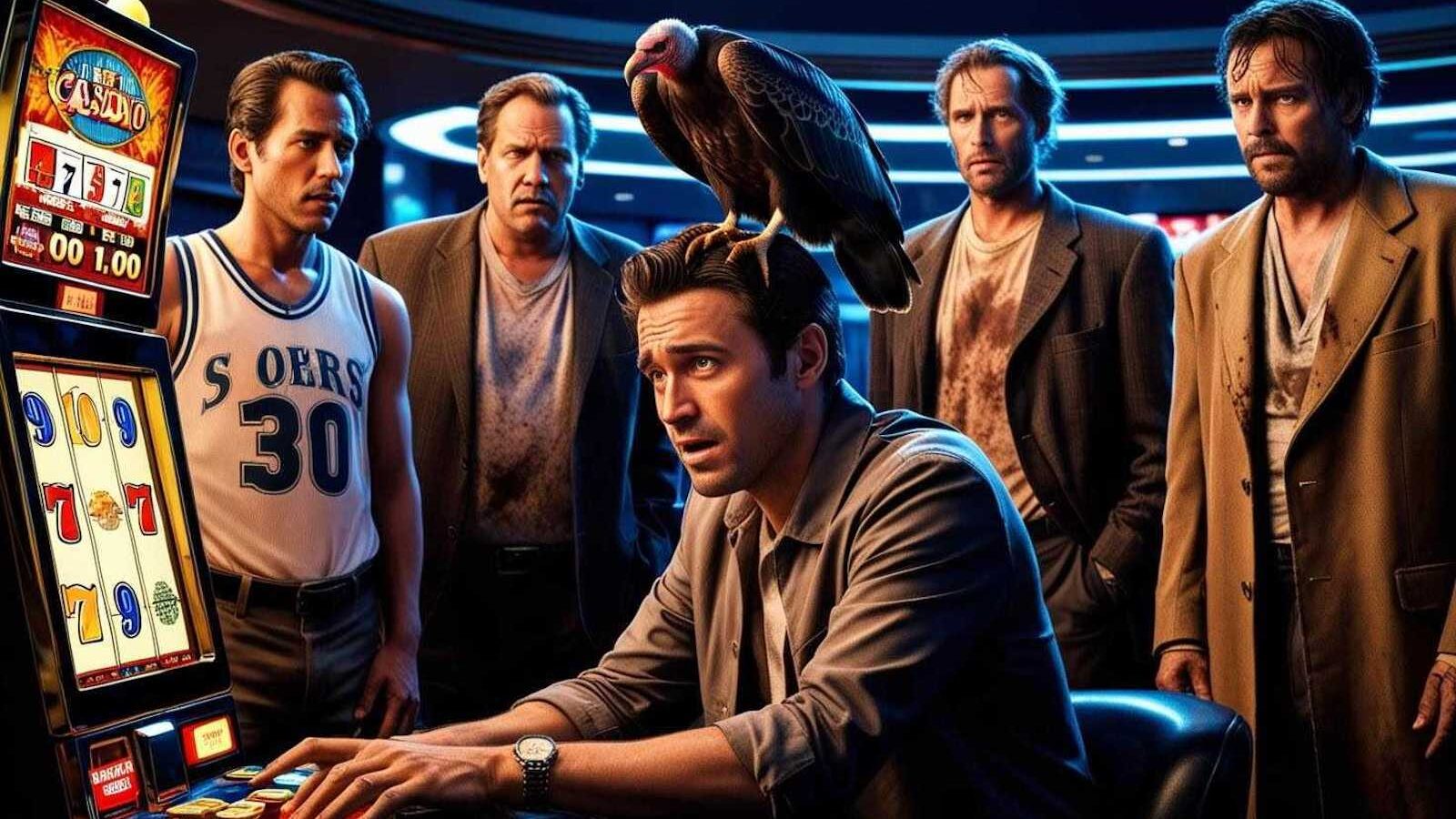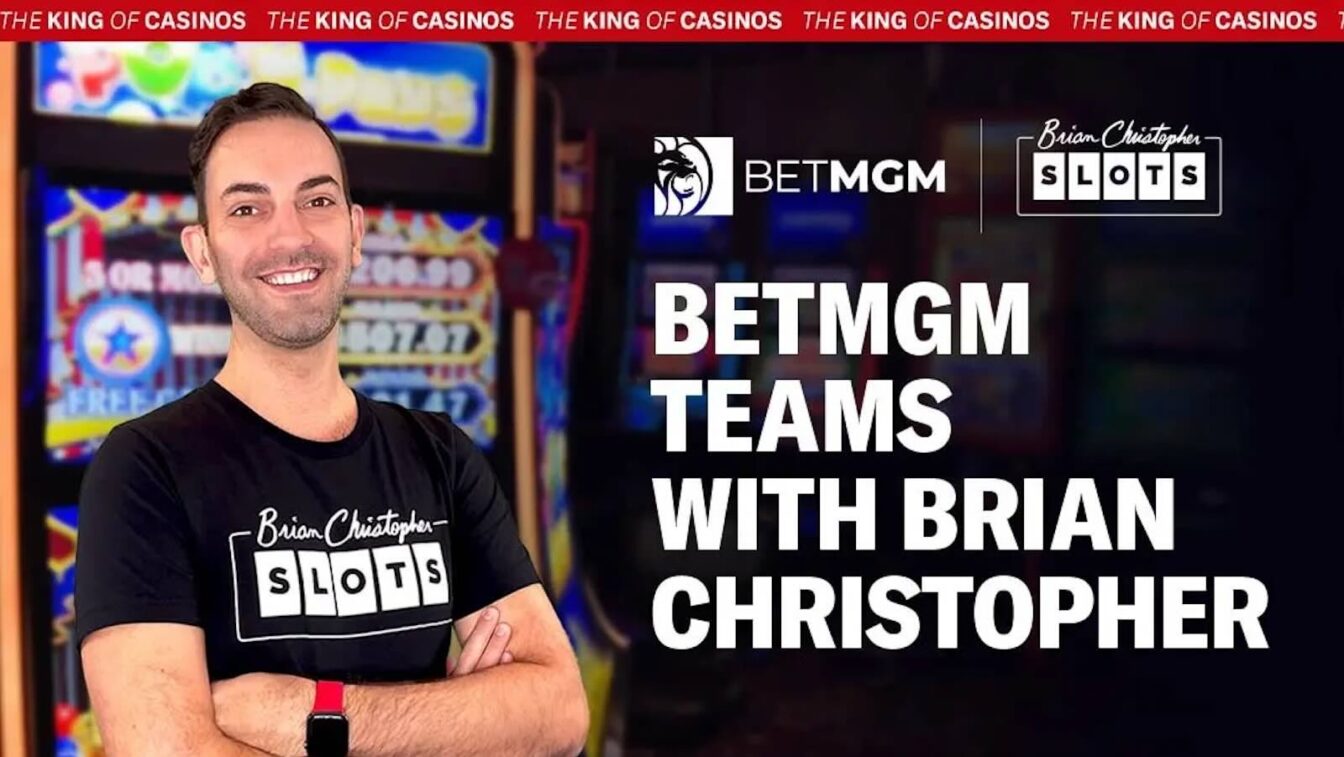Prey For Play: Slot Vultures Circle While Casinos Play Cat-And-Mouse
A specific type of advantage player is swooping in for your winnings — if the house lets them
10 min

“If you know anything about casinos, you know that slots are one of the worst bets.” So says video poker influencer Matthew Bourie, whose work can be seen on a trio of YouTube channels.
Few, if any, would argue with Bourie’s contention. The slot machine is a remorseless device with a built-in, pre-programmed house advantage. Yet that does not dent its popularity with the rank and file among gamblers.
Slot machines are the workhorses of the casino floor and, as such, represent the vast bulk of casino revenue. Despite their unfavorable odds, players gravitate to them en masse. As veteran casino consultant Dennis Conrad likes to say, “Nobody understands the slot player — including the slot player.”
Nevertheless, there are slots that can — over time — be beaten, along with many others that give the illusion of being beatable. The truly beatable draw self-styled “advantage players” looking to beat the house, as well as a subset known as “slot vultures” who look to, in a sense, beat other players.
Raptors or carrion birds?
It’s an open question among players themselves whether there is, in fact, any distinction between advantage players and vultures. “Slot vulturing is just a type of advantage play,” says Mike Shackleford. Known as the Wizard of Odds, Shackleford literally wrote the book on beating slots in his Gambling 102.
“There’s absolutely no strategy that will work for all games,” he adds. “It’s like asking, ‘Is there any strategy for advantage play on any table game?’”
“They’re more or less the same thing,” agrees Bourie of the terms “vulture” and “advantage player.”
Leading slot influencer Brian Christopher, who does not consider himself an advantage player, draws a fine line. “The only difference might be a slot vulture is someone who sees someone losing a lot of money and thinks they can jump on that machine and, all of a sudden, start winning.”
For Huntington Press Publisher Anthony Curtis (who published Shackleford’s book), the difference is in the eye of the beholder — or rather, the casino. “If they’re talking nice, they say, ‘These advantage players, we don’t like ‘em.’ But when they really want to get down and dirty, it’s ‘the vultures.’ Basically, it’s the same.”
It’s not a Vegas-only phenomenon, although vultures are reputed to systematically work the length of the Las Vegas Strip. Florida, for instance, is thick with casinos and vultures, too. “I see the same people all the time,” says Bourie, “just doing circles around the casino, looking at all the banking slot machines — and there are a few video poker games that you could vulture as well.”
Vegas-based sports bettor Mike Osborne, who loathes slot advantage players, says it’s a nationwide problem, from Atlantic City to Sin City, Colorado to Florida. “It’s in every casino, I don’t care how big or small.”
Picking the bones
“They swoop in and eat remains.”
That’s Curtis’ characterization of offal-devouring slot vultures. In talking to various experts, the picture that emerges of the prototypical vulture is someone circling the slot floor, looking for machines that are due to pay out (more on that in a moment), hoping they’re either empty or occupied by a clueless player who doesn’t know what he has.
If that naive player doesn’t give up and leave on his own, the vulture has a few tactics for chivvying him along. One is to simply hover over the machine, waiting conspicuously to play it. Another is to plop down at an adjoining machine, blow cigarette smoke in the player’s face, be noisy, or otherwise make oneself such a nuisance that the targeted player moves away.
It then becomes a matter of feeding the machine until it hits or until the head of the vulturing ring (if there is one) can be called in to deliver the coup de grace to the jackpot, like a matador finishing off a bull. In order to do this, it’s essential that the machine be what Curtis calls a “variable-state” device, one whose paytable — if properly studied — yields clues as to when the machine is ready to pay.
The professional gambler known as “Vegas Matt” — in reality, Stephen Matt Morrow — is reputed by several to be a king vulture, one who is called in to claim a built-up jackpot after lesser vultures have done the heavy lifting. (Morrow did not respond to multiple requests to comment for this article. Neither did MGM Resorts International, Caesars Entertainment, nor Station Casinos, while Boyd Gaming politely declined to participate.)
Big pigs and spinning Scarabs
Sometimes, as in the vulture-friendly game Scarab, icons on the video screen accumulate in such a way that they indicate how close a jackpot is. However, slot makers have learned to mimic this with games whose bowls of virtual coins fill up to create the illusion of an imminent jackpot.
Therein lies the difference between true-persistence and perceived-persistence slot machines. True-persistence games are set to hit at pre-programmed junctures, whereupon they reset for the next jackpot. Perceived-persistence machines play upon gamblers’ naivety through visual indicators. “They can fake it all the time,” says Curtis. “They can always make it look like the pots are full and the pig is big.”
It works, too. Studies have shown that true persistence machines tail off precipitously in terms of their popularity on casino floors despite outperforming house average by 20 percent initially. Players instead gravitate to the perceived persistence games.
“The players incorrectly think that if something hasn’t happened for a long time, then it becomes overdue,” says Shackleford.
“We all get caught up in it, even myself,” admits Christopher. “I know how these machines work and, even though I know the size of the pots doesn’t matter, it’s still in your brain: You’re so close. I personally feel bad for the players. That’s why every time I play one of those [perceived-persistence] games in my videos, I always call it out. I don’t think the slot manufacturers like that.”
Professional gambler Ben Rosenthal, author of the forthcoming Breaking the Slot Code, channels this thought process: “The numbers are increasing! The board is getting bigger! Wilds are sticking!” He adds, “The problem for the average player is they don’t know exactly when that something will pay out. Or, more problematically, how much that something will cost to trigger.”
The sort of player mindset that Rosenthal references gives rise to slot-machine mythology such as “hot” and “cold” cycles on devices. It’s what one casino journalist described almost 30 years ago as “useless voodoo about slots.”
That voodoo that few do so well
Despite the plethora of perceived-persistence machines on the floor, self-professed vultures like Shackleford know the “tells” that true-persistence slots have, tipping them off on when to play. “Still, on the Las Vegas Strip,” he cautions, “the chances that a given machine is going to be positive is about three percent. You do have to do a lot of walking around to find a good game.”
Adds Curtis, the prerequisites are knowledge of the game, patience, and a fat bankroll. “The players who prop them up, who play them early, they can’t win. … The higher you play it, the bigger bankroll you need. Some of these, you can lose a lot of money and it won’t hit.”
Bourie agrees, saying, “If you are going to play it correctly for an advantage, sometimes you need some very deep pockets, because you can have swings of several thousand dollars.”
Vegas Matt’s pursuit of a Royal Riches jackpot is cited. It hit, but not before tens of thousands of dollars were expended. “He lost an insane amount of money chasing it,” Bourie says, “because he was also playing for very high limits.”
As Osborne (known on Instagram as BigBetMike) puts it simply, “You can’t tell yourself you’re an [advantage] player or a slot vulture with very minimal money.”
“On a lot of those machines,” Bourie warns, “you have to dig pretty far through the information screen to find out whether or not it is truly an advantage slot. I’m not a big fan of the perceived-persistence slots. It’s kind of bait and switch. It’s not 100 percent honest on the slot manufacturers’ part to have these things build up and not really mean anything.”
“Yes, there are many finds that will yield a win 100 percent of the time, with the only question being how much you’ll win,” says Rosenthal from experience. “But advantage slots are all about small edges over large samples.”
Although there are slots that can be beaten, game makers continue to produce them and casinos continue to buy or lease them, despite the odds. This seems counterintuitive on its face.
“Slot manufacturers and casinos underestimated their exploitability, at least initially,” Rosenthal theorizes. “Advantage machines have proved to be big draws for the casino, which is why they’ve been sticking around and new ones are being created.” (See sidebar.)
Games (Some) People Play
Casino Reports polled our interview subjects as to which slot machines can be — with certain caveats (see “Prey for Play”) — beaten. Our sampling yielded the following recommendations:
- Scarab (made by IGT)
- Hexbreak3er (IGT)
- Wheel of Fortune High Roller (IGT)
- Buffalo Diamond (Aristocrat Gaming)
- Ocean Magic (IGT)
- Cash Falls (Scientific Games)
- Golden Jungle Grand (IGT)
- Diamond Mania (IGT)
- Buffalo Ascension (Aristocrat)
- Ultimate X Bonus Streak (IGT)
- Thunder Cash (Ainsworth)
- Cashman Bingo (Aristocrat)
Shooing the vultures
That trend of adding these types of machines may be changing. “I have noticed way fewer accumulation games in the casinos lately,” relates Shackleford. “I used to love vulturing at the Las Vegas airport because you needed a boarding pass to get to the machine. There was a lack of competition. But just yesterday I noticed the number of vulture-able games was down by about 90 percent.”
Some casinos “are pulling advantage machines,” Rosenthal confirms. “Yes, it is happening, even if some [vultures] don’t want to admit it. Some manufacturers are easing up a bit on pumping out new advantage-play games.” He cites Aristocrat Gaming’s Phoenix Link and International Game Technology’s Voodoo Jackpots as slots with lower advantages for the canny player.
“I have heard people on the gaming side say they get it. Maybe these [persistence] machines make sufficient money, but it’s at the expense of the recreational players. The advantage player is not taking money from the casino but from recreational players, and casinos don’t like that.”
Several other players agree, saying in essence that casinos are built on the perception that the house can be beaten. If a Joe Average player is grinding through his bankroll for nothing, he’s less likely to return, which is bad for the casino’s image and — more importantly — bad for a business that thrives on repetition.
Or, as Curtis puts it, “Casinos don’t like that because the money’s not going back into the machine like it does with the regular maniacs who gamble.”
“There’s a lot of these rings going around in casinos all over the world, doing this, and it hurts the casual gambler that’s coming into Vegas to have fun, enjoy their time at the casino, win a little bit of money and have a great time at a convention or a function,” complains veteran Las Vegas gambler R.J. Cipriani. “These guys have teams that are ruining that experience for all the 40 million-plus people that want to come here.”
Florida-based Bourie, however, doesn’t think the casinos have a legitimate beef. He reasons that advantage players are simply taking money from other gamblers. They have paid to build the slots up to valuable states for advantage play, so “it’s really not the casino’s money that you’re taking.”
It’s not just the machines that are getting bounced from casinos. “I have been hearing more stories of slot vultures being either informally told to leave or formally trespassed,” reports Shackleford. “So the casinos are getting more aggressive. If I ran a casino, I know I would.”
Walk the plank, matey!
It’s happening on the high seas, too.
“I’ve heard that a lot of people were doing this on cruise ships full-time and — a month or two ago — Carnival Cruise Lines 86’d a lot of slot players that were playing advantage slots,” says Bourie. “They just told them, ‘You’re no longer allowed on our ships. Any bookings you have in the future have been canceled.’”
MGM Resorts International purportedly did the same thing on dry land. A document obtained by the Vital Vegas blog and alleged to be a formal MGM letter (Casino Reports was unable to confirm its authenticity) lowers the boom on perceived slot vultures. In the future, it warns, they will no longer receive free-play-tournaments invitations nor comps on their slot play. Furthermore, “All upcoming comp reservations will be cancelled.” Ditto any outstanding free play, now and in perpetuity.
“We understand this may be disappointing news,” the document continues, solicitously, “but we appreciate your understanding.”
Some vultures make themselves easy pickings for the casino by trying to double-dip: not only playing slots that are likely to hit but inserting their player’s cards so that they get credit for their advantage play. Casinos appear to be unamused by this.
Reports Rosenthal, “They’ll open a new player’s card and hammer away on a long advantage play while using it. The casino will then think a new whale has emerged and will offer free rooms, food, and slot play. One player might have 20 different cards on him, and he’ll sell the rooms and offload whatever else he can while pocketing the free play.
“MGM got really pissed off,” says Osborne. “They’re basically taking away good plays and good little jackpots from everyday little casual gamblers. Think about the chain reaction. If that continues to happen, that means less and less of your vacation gambler gets to hit a jackpot. You don’t want to burn out your gamblers. You want some casual gamblers to win from time to time because it’s good for business.”
Nor is it just MGM, according to Osborne. “Security is very hip to it” up and down the Las Vegas Strip, “although they can’t always enforce.” The eye in the sky, he says, is watching for, say, the vulture who checks out 20 different machines in one fell swoop, punching buttons here and there but never putting in money until he finds an advantage play.
Still, he moans, “For every one that gets thrown out, three new people pop up” to vulture. “It’s kind of a revolving door.”
“When I do come across one of those [persistence] games, I check all the bets,” Christopher admits. “You may as well look at it if you’re going to sit down. You could literally make a living out of doing that, which is silly to say when you’re talking about slot machines. But there’s organized groups that go through casinos. Personally, I’m not a fan of those types of players that take advantage of the system, and ruin the fun for the rest of us who are just there for innocent fun and excitement.”
Shackleford, however, disputes the idea of widespread flocks of slot vultures working together. “For one thing, advantage players are not necessarily honest,” he confides. “A lot of slot vultures would say, ‘I don’t necessarily trust other vultures to be honest and know what they’re doing.’”
No honor among quasi-thieves? What better place for that than Sin City.






